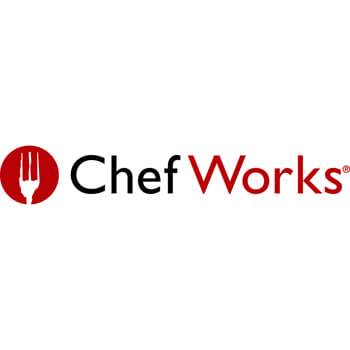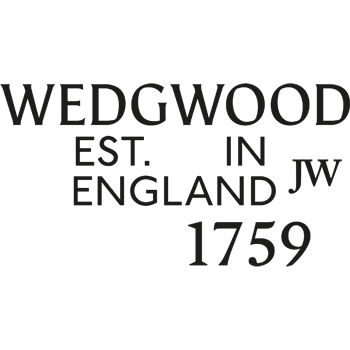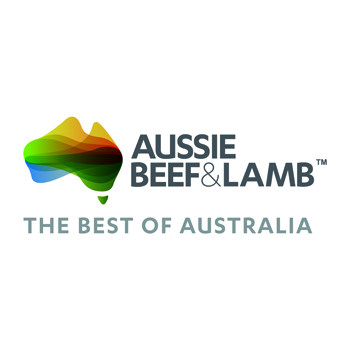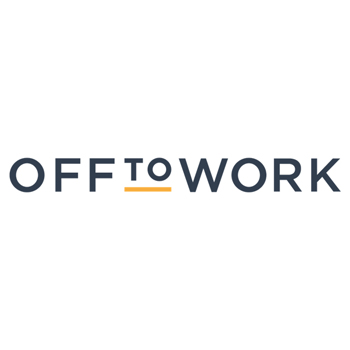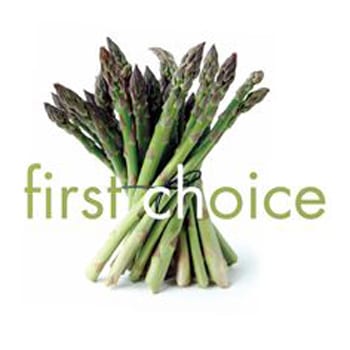The Man Who Thinks Chefs Can Save the World
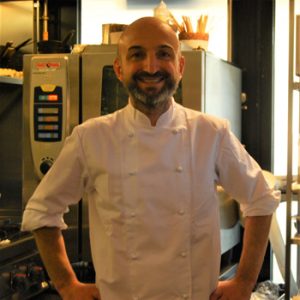
As an experienced chef himself, Will Nicholson is better placed than most to engage with fellow chefs about the issue of sustainability in the professional kitchen.
Will’s company IntoFood provides sustainability data for caterers for their menus, sales, waste and total purchasing, as well as giving specific training courses for chefs and managers.
Clients range from large contract caterers and hotels, to independent restaurants and almost everything in between.
His new online training courses are part of that picture, and designed to make it easy for chefs to lead the charge towards a more sustainable food future.
“I’m not just a sustainability geek telling people what to do,” says Will, a chef for the past 15 years, running his own restaurants and cafes.
“I’ve done the hard yards in the kitchen, and I’ve got a pretty good understanding of the pressures chefs are under and how we might start to think differently.
“The other factor I think makes me different is that the thing I’m really not going to do is tell other chefs how to cook.
 “The creativity to produce amazing sustainable food is already here in the industry, so what I am trying to do is share all my experience in food sustainability with chefs so they can take this knowledge and best practices, and then run with it themselves.”
“The creativity to produce amazing sustainable food is already here in the industry, so what I am trying to do is share all my experience in food sustainability with chefs so they can take this knowledge and best practices, and then run with it themselves.”
During his time as a chef, Will was drawn to the problems the food we eat has on both the environment and our health, and how chefs can take a key role in solving many of these problems.
“Ten years ago I was running a restaurant in the French Alps and, to be honest, food sustainability was not on my radar at all. But I started reading more about future impacts on the planet and how the food we eat (not just the food we waste) is a key factor in so many environmental and health issues. I soon realised that we chefs have a role to play in a better future.
“When I was younger, none of this was really on the radar at all. I think there is still a genuine lack of sustainability training for young chefs and, in fact, a lot of the things we need to do to be more sustainable are quite new to all chefs – the need for a shift towards more plant-based eating habits, for example.
“The challenge we have now is that so many environmental issues are coming to a head, and food is central to many of them.”
The real lightbulb moment for Will was when he studied a post graduate degree in sustainability a few years ago.
“It was then that I became more aware of the true impacts of our food system on climate change, wildlife loss, over-fishing and, of course, our own health. It made it really clear to me how much we could change in food service.”
A firm believer in the mantra that chefs really can save the world, Will says the key is remembering just how much influence chefs have over the eating habits of people.
“We forget how much influence we have over the general public in terms of their eating habits and food culture in general. The restaurants that serve amazing sustainable food over the next few years are the ones who are going to be successful, especially with the younger generation of customers wanting more from their dining experiences, too.
“Eating with a conscience is going to be increasingly important I think, and we can show real leadership there as chefs.
“The best ways for us to do this are by making sure our menus are moving in a more sustainable direction (how we use meat is a big issue here), and by being proud of those dishes so we encourage guests to choose sustainably. And, of course, by minimising waste in our kitchens.
But with food and energy prices rising, how can chefs be sustainable and still make a profit?
Will says: “There are some challenging times ahead in food service but for me it is all about creating great dishes, selling at the right price and controlling your food costs.
“The most sustainable kitchens that I have helped so far have in fact reduced their food costs by being more sustainable, so as long as you maintain the right margins, you can be more sustainable and still turn a good profit.”
On November 27, Will launches an online training courses made up of short videos and tasks, which takes chefs through a step-by-step approach to understand the key impacts food has on the environment, what it means for chefs, and how to create and sell menus that are more sustainable and profitable.
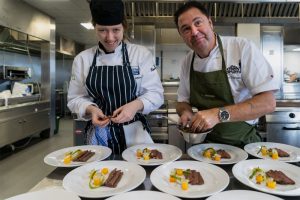
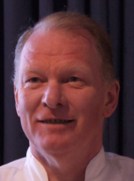
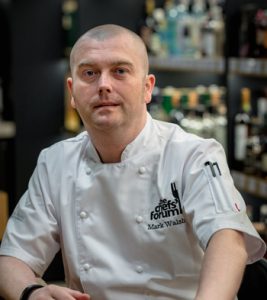 Chefs taking part in the pilot study include Dez Turland (Group Exec Chef, Brend Hotels), Anton Buttery (Langmans), Mark Walsh (Harvey Nichols).
Chefs taking part in the pilot study include Dez Turland (Group Exec Chef, Brend Hotels), Anton Buttery (Langmans), Mark Walsh (Harvey Nichols).
Will says: “Over the last few years, I have given dozens of on-site training courses and I always felt that was not the most effective way to help people.
“For these two new online courses, I have put together all the techniques that we have used with caterers and restaurants in the past, and turned them into online courses so they are totally flexible and can fit around chefs’ busy schedules too.
“The hope is that more chefs can benefit from it this way, and together we can push our industry in the right direction, and help to educate our customers too.”
When is the course available?
 Will is launching the courses on November 27 and chefs can sign up at any time after that. To celebrate the launch, he is offering a special discount of 30% for anyone signing up before January 15, 2018. You can sign up directly and pay by card here: https://skillsthatsavetheworld.teachable.com/ (enter email and a password, choose the course, pay with your card and you are good to go!)
Will is launching the courses on November 27 and chefs can sign up at any time after that. To celebrate the launch, he is offering a special discount of 30% for anyone signing up before January 15, 2018. You can sign up directly and pay by card here: https://skillsthatsavetheworld.teachable.com/ (enter email and a password, choose the course, pay with your card and you are good to go!)
You can also contact Will for a group booking offers or to ask questions at: http://www.intofood.no/courses/

